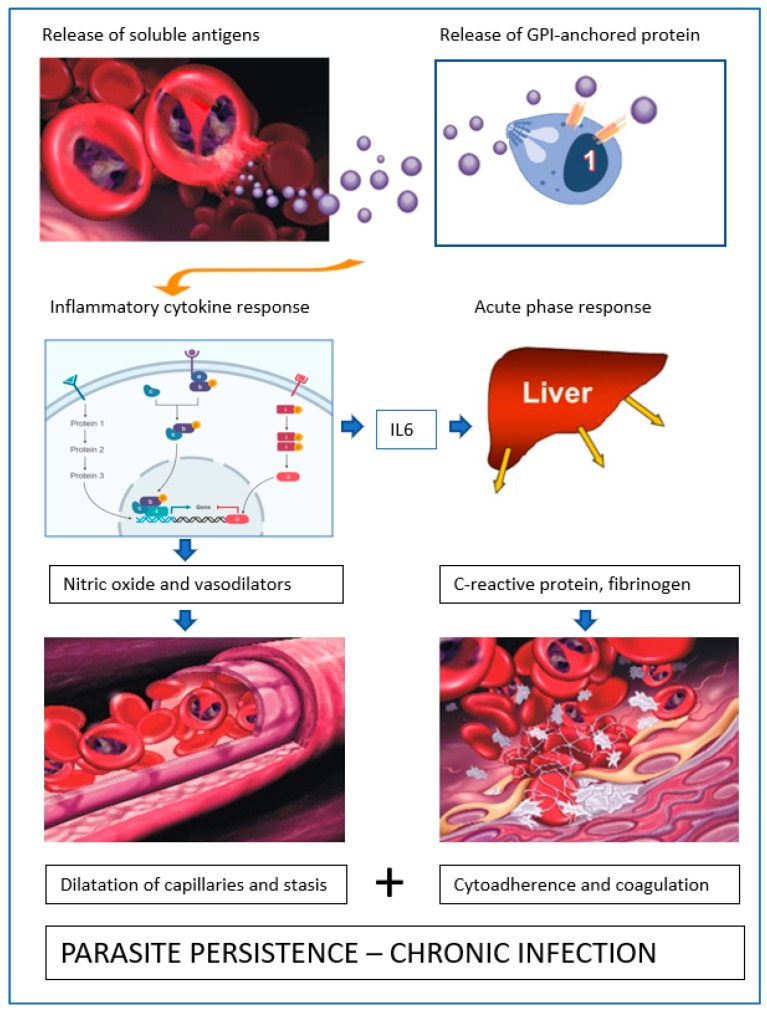Figure 14.
Schematic representation of key events leading to parasite persistence. The soluble antigens excreted by Babesia canis in erythrocytes and/or released from the parasite surface, provoke an inflammatory response that leads to the generation of vasodilatory compounds. As a result, the capillaries are dilated and the blood flow is decreased. In addition, the pro-inflammatory cytokine IL-6 is produced that stimulates liver cells to produce acute phase proteins, such as fibrinogen. Due to reduced blood flow, the propensity of infected erythrocytes to adhere to the capillary wall is increased. The activation of the coagulation system leads to conversion of fibrinogen to fibrin and the formation of blood clots with entrapped infected erythrocytes. Parasites proliferate in these clots, thus perpetuating the infection.

